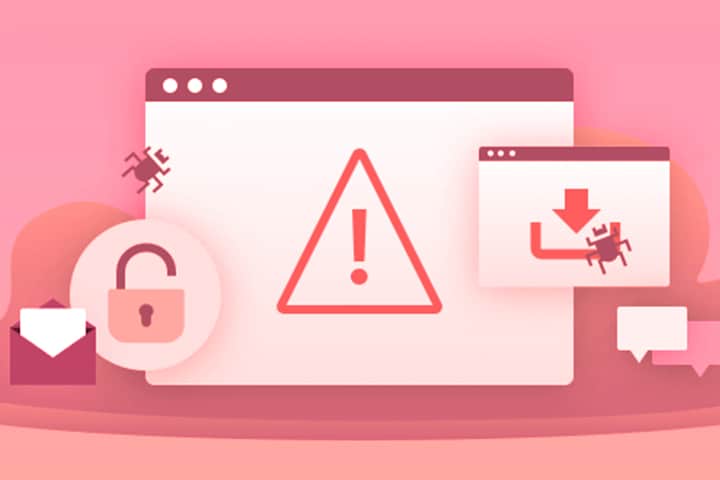The adware (from the English term and used to refer to the software advertising) is a type of malware designed to display ads on the screen of any computer, usually for malicious purposes without our consent. Attacks any computer or device, of any brand, that has the possibility of installing applications: computers, mobiles, tablets, etc.
How Does An Adware Work?
Its mission is to collect our private information to create a user profile based on your preferences and thus be able to display advertisements based on the user’s interests. This type of malware can cause sensitive data stored on the device to end up in the hands of third parties without consent and without even knowing it.
Once the profile is done, when the user opens their web browser to access the Internet, the adware starts displaying ads on the screen randomly and at continuous intervals. Generally, the ads are displayed in full screen or in the form of notifications and can be so annoying that, sometimes, it will be quite difficult to get to use a computer, since notifications and windows open without stopping.
The objective of this adware is to earn income based on the number of clicks and downloads they receive, although lately there are also some variants that are already being used as malware campaigns to steal sensitive information from users (bank details, passwords, etc. ).
How Does It Reach Us?
Currently, this type of malicious software is resorting to stealth to infiltrate our computers without permission. Sometimes it pretends to be a legitimate program (eg, fake antivirus or antimalware ) and other times it accompanies a program in a hidden way (by downloading programs of type ‘freeware’ or ‘shareware’ that are usually free).
Not only with the download and subsequent installation can we have adware, but there are also websites of dubious reputation that take advantage of the lack of updates to our browser and system to self-install in a hidden way and without consent. Once the adware ‘hijacks’ the browser on our computer, it can analyze different parameters of our system, as well as the websites we visit and display advertisements according to our interests.
How To Know If We Are Infected?
Here are some telltale signs that your computer has adware:
- Mysterious Icons appear on the desktop.
- Massive presentation of ads or notifications that start to block the screen of our team.
- The browser home page has changed without permission and another search engine is now displayed.
- Some of the websites we visit frequently do not display correctly or contain too many errors.
- The links direct us to different websites than we expect.
- The browser or computer is slower than normal and can become blocked.
- New toolbars, extensions or plugins have appeared in the browser.
What To Do In Case Of Adware Infection
Whether we have doubts about a possible infection, or if we already have the security that we are, the only alternative will be to find the adware and eliminate it, for this we will rely on the use of certain specialized tools, such as those available in the Catalog of cybersecurity tools and solutions.
If you want to make sure that everything is under control, once the cleaning is done, proceed to change the passwords of your email account, access to online banking and on those pages where your personal information, billing information, etc., such as an online purchase.
What Are The Protection Measures To Be Taken?
In addition, today’s browsers have ‘plugins’ (small specialized programs) that allow you to block annoying advertising, preventing you from clicking on a false link. You can also consult our anti-malware policy with interesting recommendations to keep your company’s security and privacy safe.
Some recommendations to prevent adware :
- Use anti-malware security applications that monitor what happens in our system in real time and have automatic updates.
- Most of the time, the adware is installed by not paying attention to the installation of these applications, where we find commercial offers and installation consents that we are implicitly accepting for not reading carefully during the process.
- Monitor email. The devices may have changed, but the threat remains the same. Many attackers still rely on malicious email message attachments to infect devices. Not click on email links, or other messages, as these can lead to websites data theft or phishing ( phishing ), will be essential for the protection of business information.
- Download from official app stores. Download only apps from trusted sources. This ensures that the applications are legitimate and not adware- infected software.
- Install antivirus protection. There are antivirus and antimalware solutions that must be installed from a trusted source and run regularly to ensure that the device is clean.
- Clear the cache memory of our browser or what is the same, eliminate browsing cookies and temporary files generated by our browser. When browsing, always take precautions, especially if something is free.
- Don’t open an app that comes from an unknown source, even if it comes in the form of known email contact.
- Remember to always keep your equipment updated and up to date.

